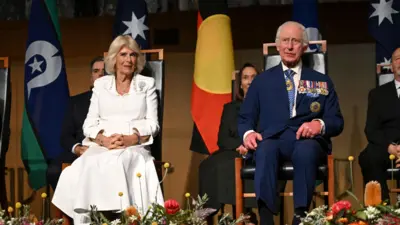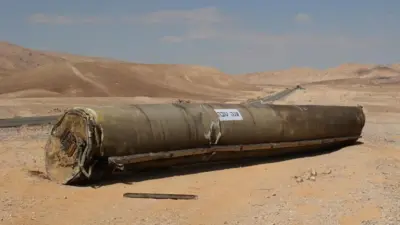We've updated our Privacy and Cookies Policy
We've made some important changes to our Privacy and Cookies Policy and we want you to know what this means for you and your data.
Thatcher wanted troops to move coal in miners' strike
Margaret Thatcher secretly considered using troops to transport coal around the UK in the event of a miners' strike, documents from 1983 reveal.
The Conservative prime minister was planning how to counter possible action by Arthur Scargill's National Union of Mineworkers, including picketing.
Stockpiling of coal and converting some power stations to run on oil were also part of government preparations.
But officials told Thatcher that using troops was a "formidable undertaking".
The previously classified documents, released by the at Kew under the "30-year rule", go through scenarios involving a potential miners' strike.
Officials warned that such a conflict was inevitable and Thatcher, who had been a minister when Edward Heath's government had been heavily damaged by such industrial action in the 1970s, was determined to avoid a repeat.
'Enormous problems'
In February 1981, less than two years into her premiership, , aware that the government was unprepared to withstand a prolonged conflict.
So secret preparations were made, with a Whitehall working group - codenamed MISC 57 - established.
Plans included purchasing land next to power stations, which were nearly all coal-fired, so supplies could be stockpiled to overcome strikes.
The government also began the expensive process of converting stations to "dual firing", allowing them to run on oil if coal ran out.
In a memorandum dated 27 October 1983, PL Gregson at the Cabinet Office noted that to move half a million tonnes of coal a week would involve between 4,000 and 5,000 lorry journeys a day.
It discussed the idea of using troops for this purpose, but warned: "The law-and-order problems of coping with pickets not just at the power stations but also at the pitheads would be enormous and would arise from the very outset of the strike.
'Radical options'
"A major risk might be that power station workers would refuse to handle coal brought in by servicemen in this way."
But the next day, a meeting of senior ministers chaired by Thatcher ruled that, while the government might be able to rely on existing coal stocks in the early stages of a strike, planning for the use of troops should continue.
The minutes noted: "It was agreed that... it might be necessary at some stage to examine more radical options for extending endurance, including the use of servicemen to move pithead stocks to power stations by rail and road."
The preparations came in the lead-up to the 1983 general election, which the Conservatives under Thatcher won by a landslide.
The miners' strike, over proposed job losses, was one of the bitterest industrial disputes of the 20th Century. It began in March 1984, lasted almost a year and is seen as one of the defining episodes of her premiership.
Top Stories
More to explore
Most read
Content is not available








